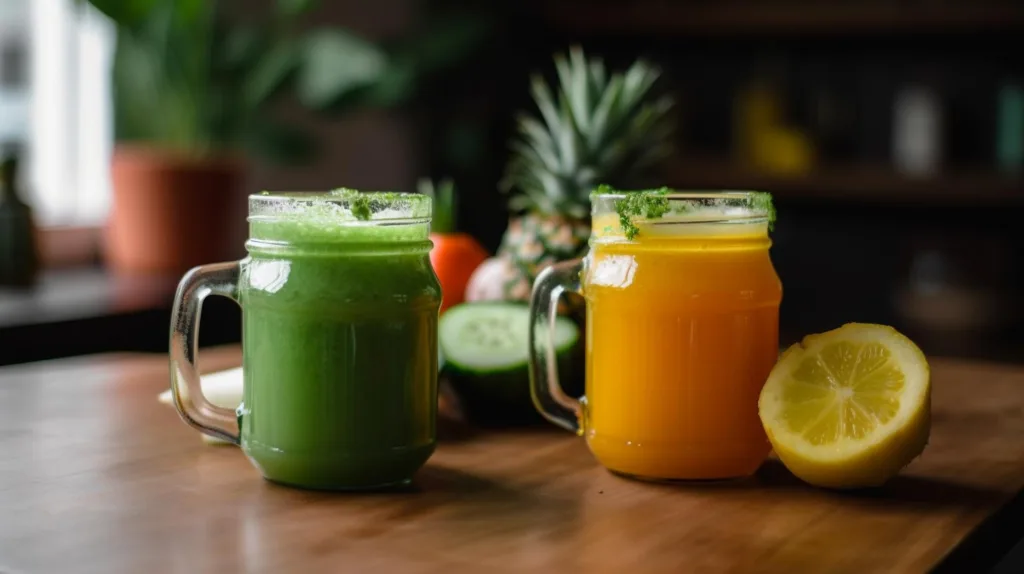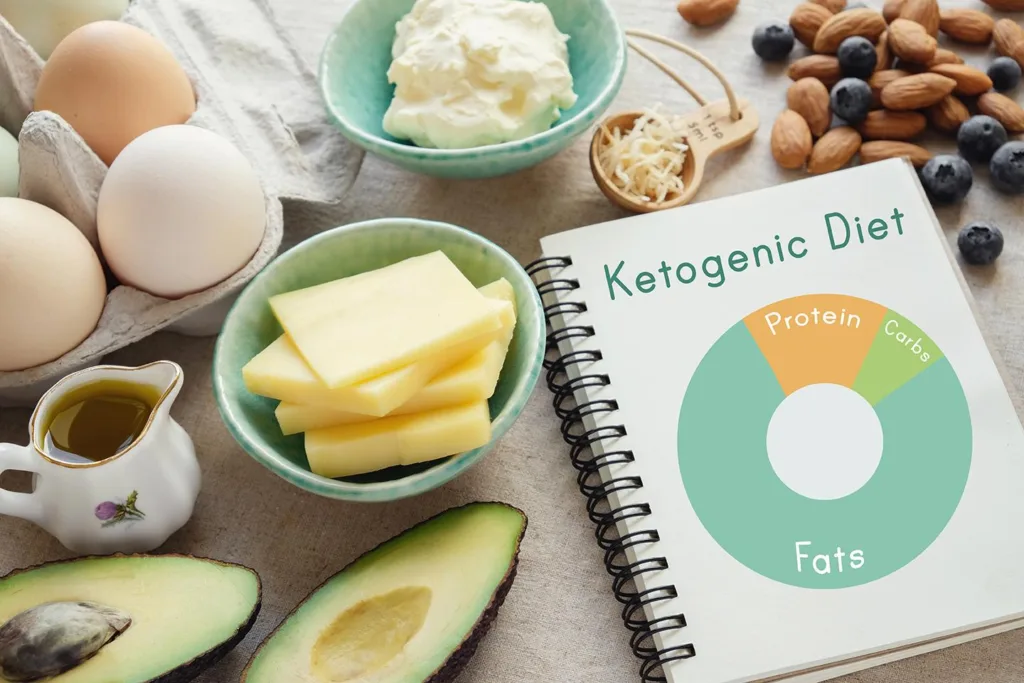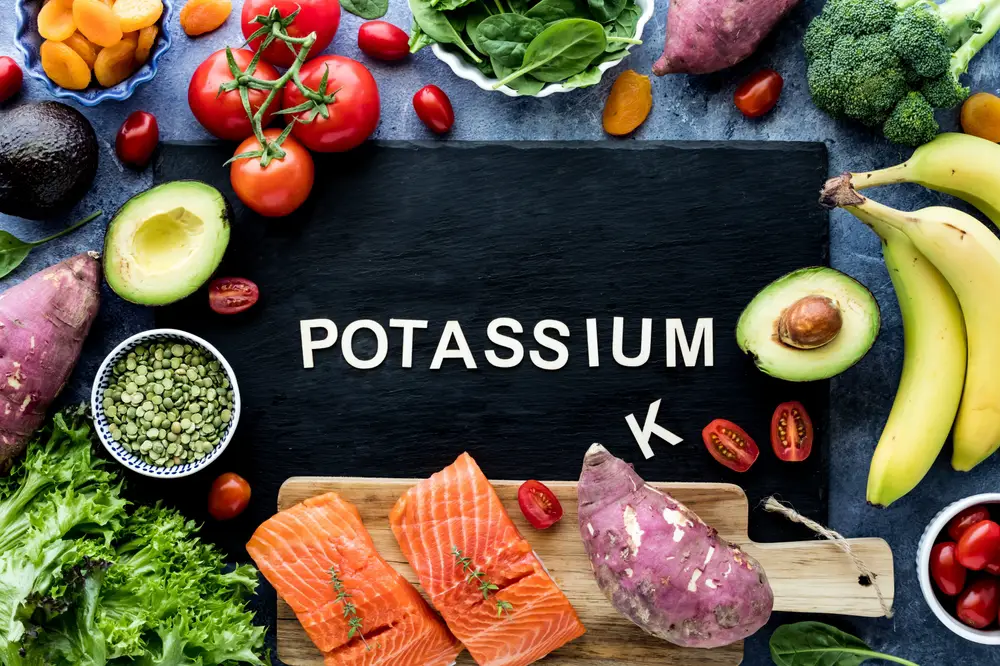Table of Contents
TRANSCRIPT
One of the best ways to combat inflammation is in your control: by maintaining a healthy diet. These are 13 foods that you can eat to deal with any disease. So, what should you add to your next meal to fight inflammation and disease?
What is inflammation?
Inflammation is our body’s natural response to injury or infection and is necessary for healing. There are two general types of inflammation: acute and chronic inflammation.
Acute inflammation is a short reaction to injury or infection. Its purpose is to deal with harmful stimuli and begin the healing process. After a while, everything is fine again, and the body works as normal. Thus, acute inflammation can help you heal and is normally good.
However, if there is long-term damage, such as when you constantly eat unhealthy foods, your immune system can’t keep up with healing. Over time, like for months or even years, this can result in chronic or systemic inflammation.
This type of inflammation can damage many organs and bodily functions. Simply put, chronic inflammation is the root cause of a wide range of chronic diseases, such as autoimmune and heart diseases, asthma, eczema, diabetes, obesity, joint pain, cognitive decline, and cancer. Also, chronic inflammation can damage artery walls, making it easier for plaque to build up, increasing the risks of having a heart attack or stroke.
Luckily, one of the best ways to combat inflammation is in your control: by maintaining a healthy diet. So, what should you add to your next meal to combat inflammation and any disease?
Read more: Is Kimchi Good for Diabetics? Fermented Foods and Diabetes
Top 13 foods that fight inflammation
1. Broccoli
Broccoli is rich in antioxidants and vitamins, making it a top food for fighting inflammation. This green veggie also contains sulforaphane, a compound that has potent anti-inflammatory effects. Research also shows that sulforaphane is linked to lower cancer risk.
In addition to its sulforaphane, broccoli is high in other anti-inflammatory compounds, such as vitamins C, A, and K, as well as fiber and potassium. Thus, eating broccoli regularly can help support a healthy immune system, promote healthy digestion and weight loss, and even reduce the risk of diabetes and heart disease.
Read more: Does Zucchini Have Vitamin K? What Are Other Health Benefits?
2. Beans and legumes
Beans and legumes are excellent plant-based protein, fiber, and essential nutrient sources. They greatly help reduce chronic illnesses and improve vascular function. Two legumes known to have strong anti-inflammatory properties are tofu and edamame.
Tofu, or soybean curd, is a popular source of high-quality protein in vegetarian and vegan diets. It contains isoflavones, which can help reduce inflammation and improve heart health.
Edamame is a type of soybean harvested when it’s still young and green. Like tofu, it’s also a good source of isoflavones. Edamame is also rich in fiber, which can help tackle inflammation and improve digestion.
3. Dark chocolate and cocoa
Dark chocolate and cocoa contain flavanols, an antioxidant that can help reduce inflammation.
Studies have shown that consuming dark chocolate or cocoa powder can decrease the levels of specific inflammatory markers in the blood. (1 , 2) In addition, these foods can also improve blood vessel function and reduce the risk of heart disease.
But note that not all chocolate is equal. Dark chocolate with a high cocoa content (70% or more) is the best because it contains the most flavanols. Milk and white chocolate lack flavanols and have few anti-inflammatory benefits. They also contain sugar, which is a powerful inflammatory compound.
Read more: Avocado Chocolate Mousse – A Delicious and Healthy Dessert Recipe
4. Tomatoes
Tomatoes are a great source of antioxidants, vitamins, and minerals for reducing inflammation. Tomatoes are also low in calories and carbs and high in fiber, so ideal for an anti-inflammatory diet.
Plus, tomatoes contain lutein, which can fight inflammation and reduce artery thickening, supporting eye and heart health.
Tomatoes are especially rich in lycopene, which can fight cancer and reduce inflammation by combatting pro-inflammatory molecules. Several studies also revealed that eating tomatoes may lower the risk of prostate cancer by 30–40%, partly due to its lycopene and carotenoid content.
To get the most lycopene from tomatoes, experts suggest eating them with their skin on. Also, cooking tomatoes, especially with olive oil, can increase their lycopene content, making it more available to your body.
5. Beets
Beets are a great source of dietary fiber, vitamins, minerals, and antioxidants. The rich color of beets comes from betalains, a group of pigments with antioxidant and anti-inflammatory properties that can combat inflammation and chronic diseases.
Furthermore, beets are high in nitrates, which can help reduce cholesterol and fight inflammation and cancer. Plus, nitrates can widen blood vessels, improving blood flow and oxygen delivery to your muscles. Thus, eating more beets can help lower blood pressure and improve heart health.
Unpeeled raw beets contain the most betalains and nitrates, and heat can reduce them. Thus, when cooking beets, lightly steam or roast to retain nutrients. However, it’s best to enjoy grated raw beets in salads or as a juice.
6. Mushrooms
Mushrooms like shiitake, maitake, and reishi are not just high in protein; they also have medicinal benefits like fighting cancer, diabetes, allergies, and bacteria. They’re among the healthiest foods because they’re rich in ergothioneine, an anti-inflammatory nutrient linked to longevity.
Maitake and reishi mushrooms have been used in traditional medicine for centuries for their anti-inflammatory properties. Shiitake mushrooms contain lentinan, which stimulates the immune system to combat inflammation in lab studies. (3) However, it is unclear how much is bio-available when eaten.
The best part is, mushrooms are the only plant-based food rich in vitamin D, making them ideal for vegetarians.
7. Berries
Berries, such as blueberries, strawberries, raspberries, and blackberries, are rich in anthocyanins, the potent antioxidants that give them vibrant color. Blueberries have the highest anthocyanin content. These antioxidants can aid in preventing heart disease and inflammation.
Plus, berries are rich in vitamin C, vitamin E, and polyphenols. They are antioxidants that protect your body from harmful free radicals and help decrease inflammation.
Despite being sweet, berries can help control diabetes and lower blood sugar because they’re rich in fiber and antioxidants. Since sugar often causes inflammation, adding more berries to your diet can help prevent inflammation while satisfying your sweet cravings.
8. Ginger
Ginger, with its anti-inflammatory and antioxidant effects, has been used for centuries for its medicinal properties. If you feel a cold or flu coming on, ginger tea can be comforting and may boost your immune system. If you’re dealing with acute inflammation or body aches, ginger tea can help soothe them.
Ginger contains gingerols and shogaols, which inhibit the production of pro-inflammatory cytokines in your body. This effect can help combat inflammation and ease symptoms of chronic conditions like arthritis and digestive problems.
Before adding ginger to your diet, be cautious not to overdo it, especially if you’re pregnant or taking medication for diabetes or blood thinners.
9. Avocado
Avocado is a unique fruit with healthy fats, fiber, vitamins, and minerals. It’s often praised for its heart-healthy benefits, but it also has anti-inflammatory effects. This is due to the monounsaturated fats found in avocados, which help reduce inflammation in the body, particularly in the cardiovascular system.
Avocados are also rich in vitamin E, a micronutrient with anti-inflammatory properties. Eating a diet high in such compounds has been linked to a lower risk of joint damage that often occurs in the early stages of osteoarthritis. (4)
10. Salmon and other fatty fish
Fatty or oily fish, including salmon, mackerel, sardines, and anchovies, are excellent sources of omega-3 fatty acids. Omega-3 fatty acids are great anti-inflammatory agents because they can reduce the production of inflammatory molecules, such as cytokines and prostaglandins.
In addition to their anti-inflammatory benefits, omega-3 fatty acids have been linked to various health benefits, including improved heart health and brain function.
Note that omega-3s, such as DHA, are essential fatty acids the body cannot naturally produce and must obtain through the diet. So, try to add more oily fish to your diet. When choosing fish, opt for wild-caught varieties whenever possible, as these tend to be lower in contaminants and higher in beneficial nutrients.
Read more: Fish En Papillote With Asparagus Salad
11. Extra virgin olive oil
Olive oil is a healthy fat rich in anti-inflammatory compounds, such as polyphenols and monounsaturated fats, particularly oleic acid. These compounds can help decrease inflammation, lowering the risk of cardiovascular disease and cancer.
The monounsaturated fats found in olive oil can also help lower cholesterol levels and improve insulin sensitivity.
The higher the quality of your olive oil, the more anti-inflammatory compounds it contains. So, be sure to read the label carefully for optimal benefits.
12. Nuts
Nuts like almonds and walnuts have healthy fats, fiber, and antioxidants. Studies showed that regular nut consumption could help relieve inflammation in the body.
Almonds are rich in vitamin E, monounsaturated fats, and polyphenols, which help neutralize free radicals and reduce oxidative stress. By combating oxidative stress, almonds can help decrease inflammation.
Walnuts are high in omega-3 fatty acids, particularly alpha-linolenic acid (ALA), which can reduce inflammation and protect against heart disease, stroke, and other chronic conditions. They also contain magnesium, an essential mineral that plays a role in regulating inflammation.
Read more: Peanuts and Diabetes: Benefits, Risks and Best Ways To Eat
13. Green tea
Green tea is known for its catechins content. Being the potent antioxidants, catechins can neutralize harmful free radicals, thus lowering inflammation in your body. In addition, catechins may also help protect against cancer and viruses.
Epigallocatechin gallate (EGCG) is a powerful catechin in green tea. This anti-inflammatory compound is linked to improved heart health and brain function. Studies suggest EGCG may help protect against diseases like Alzheimer’s.
Other compounds found in green tea, such as theanine, may also help promote relaxation and reduce stress. Stress is another cause of inflammation.
Read more: Which Tea To Help Focus? Common Myths When Drinking Tea
Conclusion
And this wraps up our list of best anti-inflammatory foods. Building an inflammation-proof diet isn’t hard. All you need is a balanced diet with plenty of fruits, vegetables, and oily fish. They have all the vitamins, fiber, and antioxidants to benefit your health.
While eating anti-inflammatory foods is an ideal way to lessen inflammation, it is not the only solution. To prevent inflammation, avoid processed and fried foods because they generally contain trans fats, sugar, and salt. Eating them regularly may also lead to weight gain, higher cholesterol, and heart disease.
Also, adopting a healthy lifestyle and good habits can also play a significant role to combat inflammation. For example, staying active can help improve circulation and boost the immune system. Managing stress and getting enough sleep are also important to fight inflammation, and you are on your way to lower risk of any disease.
Summary
Inflammation is our body’s natural response to injury or infection and is necessary for healing. There are two general types of inflammation: acute and chronic.
Maintaining a healthy diet is one of the best ways to combat inflammation by eating 13 foods above.

















Comments
0